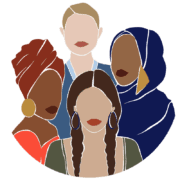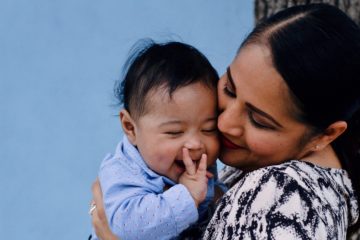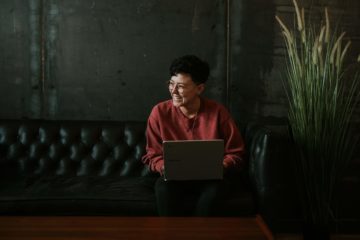By Tasha Abdul Mutalib (@tasha_abdm)
SG Stories is a new long-form series featuring homegrown startups with unique strengths and extraordinary journeys – exclusive to Girls in Tech Singapore.
We hope you’re inspired to learn from their stories, as we did in telling them! – Tasha, Editor in Chief.
 Most business ideas begin with some form of inspiration – a problem that needs solving, or the desire to create wonderful experiences for others. Melissa Chan found her inspiration on a path most would find uncomfortable, or even painful – her father’s struggle with dementia.
Most business ideas begin with some form of inspiration – a problem that needs solving, or the desire to create wonderful experiences for others. Melissa Chan found her inspiration on a path most would find uncomfortable, or even painful – her father’s struggle with dementia.
“I was about 14 when my dad was diagnosed with young-onset dementia,” Melissa said. “The doctors attributed it to the belated effects of an accident from when he was younger. For the next 10 years I lived every day seeing my father fight the disease, and my family’s struggle to redefine normalcy, until he passed on in 2014.”
She went from a teenager still forming a worldview for herself, to a young caregiver. This was no easy transition for someone living with the condition – dementia is not easily diagnosed and as yet has no cure – let alone their child. “Historically, even now, there is no effective medical intervention for dementia, and there have been few governmental, private sector or societal pushes to address caring for persons with dementia. The plight of dementia has only very recently started to gain attention within Singapore,” Melissa adds.
Her loss however sparked a train of thought which she found herself unable to ignore; as she puts it: “Losing him made me think about the millions of others who are affected by dementia; who may not know what to do with family members who have it, or feel helpless and hopeless during the months and years of caring for someone who is slowly slipping away.”
Melissa’s anguish and her struggle to come to terms with her new life is encapsulated in a collaboration with Our Better World – a letter to her father narrated by herself. It’s animated to show how her world turned upside down, and how she found peace with it in the present day. It also describes, in her own words, the seismic shift in her family’s lives upon her father’s diagnosis, and the things she felt helpless about.
Despite regrets and wishes for things never to be, she remembers her father’s enthusiasm for entrepreneurship and new, great ideas. As she sought to honour his memory a desire to help others, especially those like herself who become caregivers at a young age, began to manifest into the beginnings of her social enterprise.
“I wanted to draw from my experience to do something for my father, something that would live on in his memory,” Melissa shared. “My faint memories of him were from when I was younger. I never really got the chance to know him better as a person, and as my father, before we had to finally let him go. Project We Forgot is partially a tribute to him.”
Social impact as a business goal
Project We Forgot was started 2 years ago; in a landscape dominated locally by non-profit organisations (NPOs), voluntary welfare organisations (VWOs) and Social Service Offices (SSO).
What Melissa wanted to offer was something different: “Our target beneficiary group are young caregivers, who face a substantial and unique burden in caring for persons with dementia.
They are often left to deal with the stigma that the illness carries – they feel isolated because their peers do not understand what they are going through, they carry the guilt when they have to choose between growing up and finding their ‘self’ vs. having to shoulder the responsibilities of caring for their loved one.
They are usually just starting their own lives, juggling work, school and social lives, when they are faced with the task of having to take care for a loved one with dementia – parent or grandparent.”

Project We Forgot has a unique and noble goal – to serve the caregivers of persons with dementia, and through them, the person with dementia themselves.
“Dementia rates are expected to rise over the next 10 years, and more young people will get involved in care for their parents and grandparents. We want to make sure that caregivers are better equipped for this task than we were, and that we can better manage care and outcomes for persons with dementia,” Melissa said.
Finding a way to grow something new
Striking out on her own was not easy – she first had to overcome leaving a comfortable corporate job in the glamorous hotel industry. The space was entirely new to Melissa, as she had only been exposed to the medical and care industry through her experiences with her father.
“My background has always been in branding and communications in the corporate space. When I decided to start Project We Forgot, there was a lot I needed to learn (and still do!) about the sector.
From understanding the industry as a whole, the needs and experiences of caregivers, to the services and help that was available. The learning curve was steep and it was hard because people are always wary of your intentions, especially when you are starting from ground-up and not spun out of a larger foundation or organisation. I did not want to rely on just my own experience so there was a lot of research to be done – caregivers, PWDs, and finding the right mentors.”
Melissa chose to run Project We Forgot as a social enterprise (SE) after deciding that it needed to be a lean operation without a traditional management structure. She also reviewed the current landscape for caregiver support as well as looking at what gaps needed to be filled, even with available resources such as Voluntary Welfare Organisations (VWO) and Social Service Offices (SSO). There is strict legislation around self-governance, fundraising, and the need for annual reporting – which is compulsory for charities.
“A lot of people here ask us – why not be a charity? For me and my team, we believe in finding a model to sustain our impact in the long run,” Melissa commented.
A social enterprise is defined by The Singapore Centre for Social Enterprise or raiSE as a business entity set up with clear social goals – where there is clear management intent and resources allocated to fulfil their social objectives. raiSE supports about 400 social enterprises as a sector developer, so there is obviously a change in how charitable work is now planned out and executed.
This trend of developing and creating social enterprise around a cause is also a reflection of how beneficiaries of social services are getting younger; technology can break down barriers to offer them much-needed support. Melissa also sees Project We Forgot as a platform to reach those who feel restricted by loyalty to family and traditional Asian values.
“Asians rarely talk about illness, seeing it as taboo and something to be handled privately. It also wasn’t something a teen could talk to their friends about – taking care of a parent who is slipping away and gradually losing their identity. Filial piety also meant I wasn’t comfortable speaking about it most of the time,” Melissa described.
What works for those who need it
Project We Forgot is a social network for caregivers to persons with dementia that provides knowledge resources and peer support for dementia care. They build awareness and knowledge of treating and coping with dementia by sharing local and international content.

In addition to quarterly forums for caregivers and one-off events such as the upcoming We Remember! Festival, Project We Forgot packages resources in approachable formats for young caregivers short on time and sometimes isolated by their obligations to loved ones: Instagram-friendly tips, a collaborative Spotify playlist and stories by caregivers.
Melissa lists off her goals in a clear order: first to create awareness for the condition and its variants, then knowledge sharing and education for caregivers, and finally bringing discussion out into the wider community. Dementia and its societal side effects will become more common and ultimately impact how Singaporeans live and receive healthcare, so it makes sense to start thinking about it now.
Building a team around her vision
Despite having a sophisticated, comprehensive platform and resources, Melissa is still finding her way – she only got herself a cofounder three months ago. In learning the ropes she worked hard to provide what was needed in terms of content and collaboration, while working behind the scenes to get her operations and team in order.
“Our team is made up of enthusiastic and innovative individuals, who have a passion for dementia outreach, awareness and supporting caregivers. We build our team with individuals who have been caregivers or want to support and impact the lives of caregivers. Our skills span design, editorial, dementia care, volunteer management, engineering and product development,” she shared.
Building a team around a cool app or service can be difficult, doubly so for a social enterprise created around dementia. Melissa found a way through common experiences and desire to keep helping and giving back to others: “Our members have come together through all sorts of ways – some were inspired to work with us after they shared their story, others connected to us through partners/friends.
It’s never easy building a team and it is harder when we are building an initiative around dementia. It is not a ‘cool’ or ‘fun’ topic – but I am glad I have found a bunch of awesome individuals who believe in the cause and the vision of creating better care for dementia.”
Even with a great core team there are challenges with this new approach to support and resources for dementia caregivers, Melissa saying, ”Definitely overheads/costs – we can see the impact our work brings about to the caregivers we connect with. While we are working towards a sustainable model to keep our operations running, it is important that we balance the model with our social objectives.”
Open to partnerships and optimistic about the future
One interesting aspect of social enterprise? “No competition – we see the work we do as reliant on collaboration with all stakeholders,” Melissa commented.
This speaks to her role as founder of Project We Forgot, as priorities change and initiatives or partnerships develop. “My role is always evolving based on the needs of the organisation but I mainly manage relationships with all our external partners and our community and content teams,” Melissa described.
“We cover both global and local stakeholders, some of which include local and foreign Dementia Associations, organisations within the social and healthcare sector, the Alzheimer’s Disease International, corporates, the Government and mostly importantly persons with dementia and their caregivers!”
Despite having built a network of young caregivers and providing a structure for them through four pillars of the work (online community, local chapter support, global collaborations and professional workshops) Melissa credits a sense of vulnerability in helping her lead a team to run the initiatives of Project We Forgot; something which is inevitable when sharing common experiences to form bonds and support for its beneficiaries.
While before she questioned the meaning of her father’s life, Melissa now finds strength from it to keep moving forward and stay true to the cause.
For her the social enterprise model is a means to push herself – to sustain efforts through the unifying vision of helping young caregivers, and this in turn fueling Project We Forget to further provide support and raise awareness for dementia.
Project We Forgot has plans to expand its support for caregivers through the development of a dedicated social network. This will allow caregivers to share resources and support each other at any time, as well as access professional support from experienced caregivers and medical professionals when they need it. Find out more and register your interest here.
This coming Saturday 30th September Project We Forgot is celebrating World Alzheimer’s Month through film, music, art and photography at We Remember! Festival. The event aims to bring the journey of dementia and the impact caregivers face to light. Join Melissa in changing the story around dementia here.




